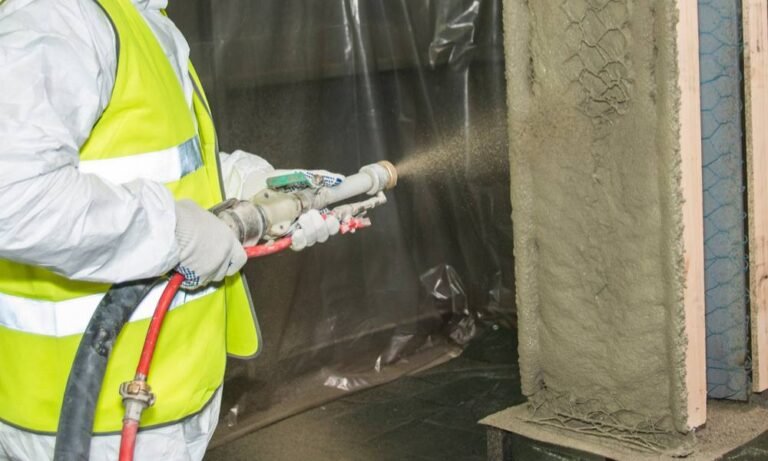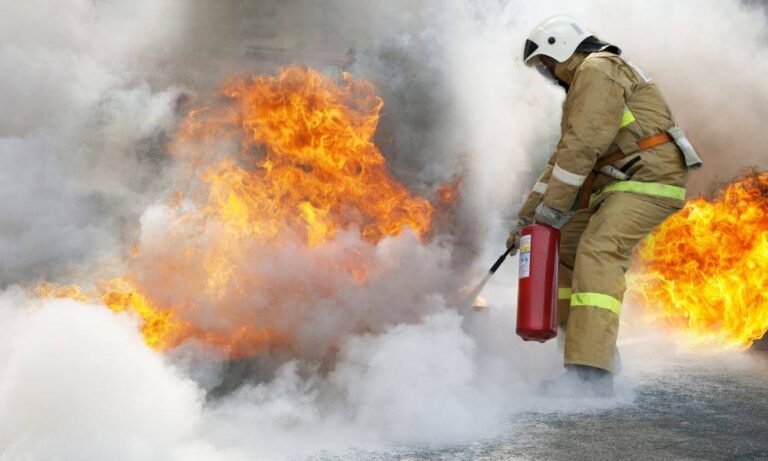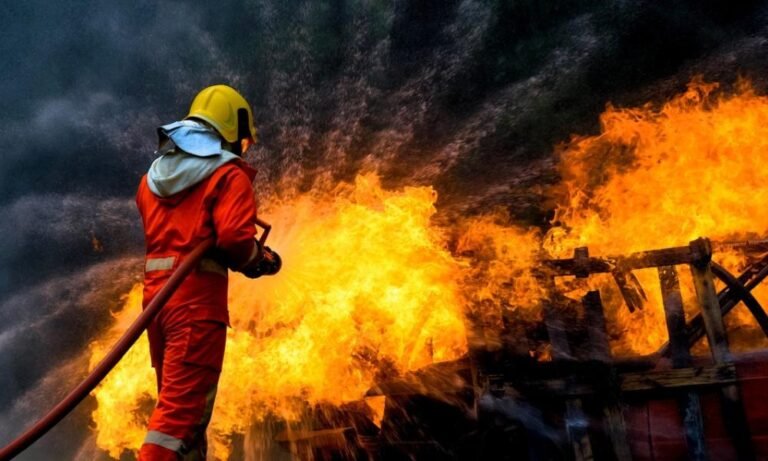Estimated reading time: 5 minutes
Fire protection is a critical part of any building, whether it’s a home, office, or industrial facility. But not all contractors offer the same level of expertise. Hiring the wrong one can lead to compliance issues, safety risks, and wasted investment.
I’ve seen firsthand how important it is to choose a professional who understands fire-resistant techniques, applies materials correctly, and follows legal requirements. This guide will help you make the right decision when selecting a specialist.
What You’ll Learn Here
- Why choosing the right contractor matters for safety and compliance.
- Key qualifications to look for in a fire protection expert.
- Essential questions to ask before hiring.
- Red flags that signal an unqualified or unreliable service provider.
- How to compare pricing and warranties without compromising quality.
Why Hiring the Right Contractor Matters
Protecting Buildings and People
A well-executed fire protection strategy helps contain flames, slows down their spread, and gives people time to evacuate safely. The right professional ensures that fire-resistant materials are applied properly, reducing the risk of severe damage.
Avoiding Compliance Issues
Building codes exist for a reason. Fire protection measures must meet safety regulations, and failing to comply can result in fines, failed inspections, or legal trouble. A certified contractor understands these requirements and follows proper procedures.
The Risk of Cutting Corners
Selecting a service provider based solely on price can be a costly mistake. Poor application of fire-resistant treatments can leave buildings exposed to hazards, increase structural risks, and lead to expensive rework.
If you’re unsure whether your property meets modern safety standards, check for these signs that you may need fireproofing services.
Key Factors to Consider When Selecting a Fireproofing Contractor

Proper Certifications & Licensing
A reputable professional should hold NICET certification and approvals from relevant fire safety authorities. Their licensing must also comply with local and national building codes to guarantee safe installations.
Industry Experience
Experience plays a major role in quality. A seasoned specialist understands fire-resistant materials, different structures, and local compliance requirements. Ask for examples of past projects, especially if your building has unique needs.
Want to know more about protective methods? Here’s how fireproofing works.
Quality of Materials Used
A reliable contractor will use only tested and approved materials, such as:
- Intumescent coatings that expand under heat.
- Fire-rated insulation made from mineral wool or cellulose.
- Cementitious sprays to protect steel frameworks.
Don’t hesitate to ask what products they use and whether they meet ASTM and NFPA safety standards.
Reputation & Customer Feedback
A strong track record is one of the best indicators of reliability. Look for:
Customer testimonials and online reviews.
References from past clients.
Evidence of repeat business with reputable companies.

Knowledge of Fire Safety Regulations
Fire-resistant treatments must comply with:
- NFPA (National Fire Protection Association) codes.
- OSHA (Occupational Safety and Health Administration) standards.
- State and local fire safety requirements.
If a contractor can’t explain how they stay compliant, consider it a red flag.
Transparent Pricing
The cost of services varies based on:
- Building size and complexity.
- Materials required for the job.
- The level of protection needed.
Be cautious of providers offering unrealistically low quotes—they may be cutting corners on quality.
Curious about financial benefits? See how fireproofing can lower insurance costs.
Warranty & After-Service Support
A reputable contractor will provide:
A clear warranty policy.
Follow-up inspections to ensure materials remain intact.
Emergency service availability when needed.
A lack of warranty may indicate low confidence in the quality of their work, which is something you don’t want to risk.
Questions to Ask Before Hiring a Fireproofing Specialist
- Are you certified and licensed for this work?
- What application methods do you specialize in?
- Can you provide references from past projects?
- What materials do you use, and are they certified?
- How do you comply with fire safety codes?
- Do you offer follow-up inspections and maintenance?
- What does your warranty cover?
Red Flags to Watch Out For
No verifiable licensing or certifications.
Limited experience in commercial or industrial buildings.
Evasive answers about materials and compliance.
No customer reviews or negative feedback.
Bargain pricing that seems too good to be true.
Any of these could indicate an unreliable or inexperienced contractor—one that might compromise safety.
Steps to Take Before Signing a Contract
Compare Multiple Providers
Don’t settle for the first name you find. Collect multiple quotes, check qualifications, and compare services.
Request a Written Proposal
A professional contractor should provide a detailed proposal that includes:
- Scope of work.
- Materials to be used.
- Compliance with safety standards.
- Projected timeline.
- Cost estimates.
Verify Credentials
Request proof of certifications, licensing, and insurance coverage before finalizing any agreement.
Schedule a Site Visit
A hands-on assessment helps contractors determine the best fire-resistant solutions for your building. It’s also an opportunity to gauge their professionalism.
Looking for more ways to protect your property? Consider eco-friendly fireproofing options for sustainable fire resistance.
Final Thoughts: Choose Wisely, Stay Protected
Fireproofing is an investment in safety, and hiring the right contractor ensures long-term protection, compliance, and peace of mind.
Before making a decision, compare experience, certifications, materials, and customer feedback. Taking the time to do your research can prevent costly mistakes and keep your building safe in the long run.



